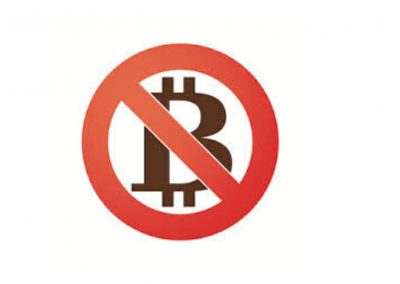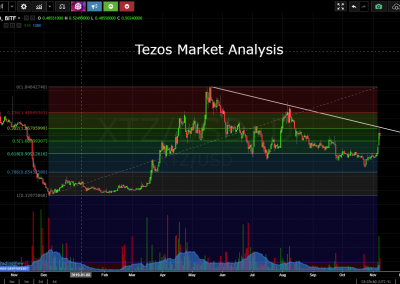Credit card companies want you, and they’re willing to pay extravagantly for your business.
If you’re above a certain age, you remember the credit card industry for the Big Three: Visa, MasterCard, and American Express. They gave you lines of credit, they charge you interest rates, you paid your balance, and the cycle went on.
But as Americans have grown more and more into the must-have consumers that many of us are, the credit-card industry has blossomed and spread across the globe. To compete against one another for your attention, credit-card companies first offered lower interest rates, periods with 0% interest. Those kind of rewards are all well and good, but they don’t speak to the consumer heart of the average credit-card holder.
Lower interest rates are an “in the future” reward; something consumers see on their bill when their next statement arrives. Additionally, the average person can’t readily compute the difference between an interest rate of 13% and an interest rate of 11% over the life of a credit-card account. So, while it might add up to thousands of dollars of savings over time, its value in the present is minimal.
That’s why credit-card companies have hit upon the idea of offering rewards to members for signing up, buying specific goods and services, spending preset amounts in a given time frame, etc. Many card companies offer a loyalty program where consumers are awarded points for dollars spent. They can redeem these points for rewards including balance reductions, gift cards, and actual physical items.
It’s a jungle out there when you’re trying to pick a new credit card. Here’s a look at some of the best credit cards when it comes to rewards programs.
Cash Back Rewards
- Citi Double Cash Card: The Citi card allows you to earn 2% cash back on all you have purchased. You’ll receive 1% when you make purchases and another 1% when you pay off your statement. For instance, if you spent $10,000 in a year on your Citi card and paid the whole thing off in the same calendar year, you’d earn $100 as you made the purchases and another $100 when you paid off the statements for a total of $200 cash back. This Citi card has extra appeal because it has no annual fee.
- Alliant Cashback Visa Signature Card: When you sign up with Alliant, you’ll get 3% cash back for your first year with no annual fee. From there, the cost is $59/year, and the cashback rate drops to 2.5%. If you spend $10,000 per year, you will receive $300 with no annual fee the first year; then $250/year after that with a $59 price, which drops your net gain to $191. Alliant offers no fees on international transactions as a bonus.
- Discover it – Cashback Match: Discover goes in a different route, offering 5% cash back up to $1,500 spent every financial quarter. The catch is that it’s only 5% back on specific categories of goods and services. The ongoing 2018 schedule for this card is:
- April-June 2018: Grocery stores
- July-September 2018: Restaurants
- October-December 2018: Amazon.com and Wholesale clubs
The rewards based on purchases in specific categories can prove to be a double-edged sword. If you spend a lot of money in these categories, you can earn up to $75/quarter. However, some consumers feel pressured to purchase more in specific groups to avoid leaving rewards on the table. Discover offers to match your cash rewards for the first year of your membership. That means you could earn $300 cash back in a typical year, but $600 back in your first year.
Travel Reward Cards
- Capital One VentureOne Rewards Credit Card: In addition to a slew of amusing TV commercials, the VentureOne card rewards newcomers with a one-time bonus of 20,000 miles if they spend $1,000 in the first three months of their account being open. Every 10 miles is worth $1 of travel money, which means a 20,000-mile bonus is worth $200 of travel expenses. The card does not have an annual fee and gives cardholders 1.25 miles for every dollar they spend. If you pay for hotels by making reservations at hotels.com with a VentureOne card, you’ll earn 10 miles for every dollar spent. VentureOne allows you to travel without fear of blackout dates or foreign transaction fees. Additionally, all airlines and hotels accept it as a form of payment.
- CapitalOne Venture Rewards Credit Card: The Venture card is the VentureOne card on steroids. It has the same perks on foreign transaction fees, blackout dates and using hotels.com. Additionally, every dollar spent earns you 2 miles instead of 1.25. The big fish in the lake comes if you spend $3,000 within your three months from opening your account. Fulfilling this quota earns you a one-time bonus of 50,000 miles.
- Barclays Arrival Premier World Elite: You’ll be traveling in style with the Barclays Arrival card. If you spend at least $25,000 in purchases each year, you get 75,000 miles ($750 of travel purchases). You also take part in the Mastercard Airport Experience provided by LoungeKey which allows you access to exclusive lounges at airports all over the world. You also receive a $100 automatic credit towards the cost of applying for a Global Entry status for re-entering the United States in an expedited factor. There are no foreign transaction fees, and the card includes an international Chip/PIN combination to ensure it is accepted around the world.
- Gold Delta SkyMiles Business Credit Card for American Express: Whether you travel for business or pleasure, the SkyMiles card will reward you dramatically when you choose Delta Airlines. You’ll earn 30,000 bonus miles ($300) by spending $1,000 on through SkyMiles n the first three months after activation. Purchasing through Delta in any amount in the first three months and you’ll get a $50 credit on your statement. All eligible purposes via Delta earn you 2 miles/dollar spent. Everything outside of Delta earns you 1 mile/dollar spent. There are no foreign transaction fees. The card has no annual fee the first year; although it rises to $95 in each subsequent year.
- Chase Sapphire Preferred Card: To kick it off, if you spent $4,000 in purchases within three months of opening your account, you’d earn 50,000 bonus points, good for $625 of travel purchases. You’ll receive an additional 5,000 bonus points when making your first purchase in those first three months. When you use the card on travel and dining purchases, you get twice the points. Otherwise, it’s 1 point per dollar spent. There are no transaction fees, and you also get a 1:1 point transfer from the card to participating airline and hotel loyalty programs. Card membership also keeps you from experiencing limitations due to blackout dates or travel restrictions. When you redeem your points for travel through Chase Ultimate Rewards, you will receive 25% more value. For example, redeeming 10,000 points would get you $125 towards your next travel purchase as opposed to just $100. The card was named “Best Travel Credit Card” by Money Magazine in 2016-2017.
Business Reward Cards
- Capital One Spark Cash for Business: When you’re buying tools of production for your business, running out of money is crippling. The Capital One Spark card gives you unlimited 2% cash back on everything you spend, all year long, with no limits based on categories. If you spend $4,500 in the first three months after your account opens, you’ll earn a one-time bonus of $500 in cash. There’s no intro fee the first year, but it rises to $95 after that. The rewards do not expire.










